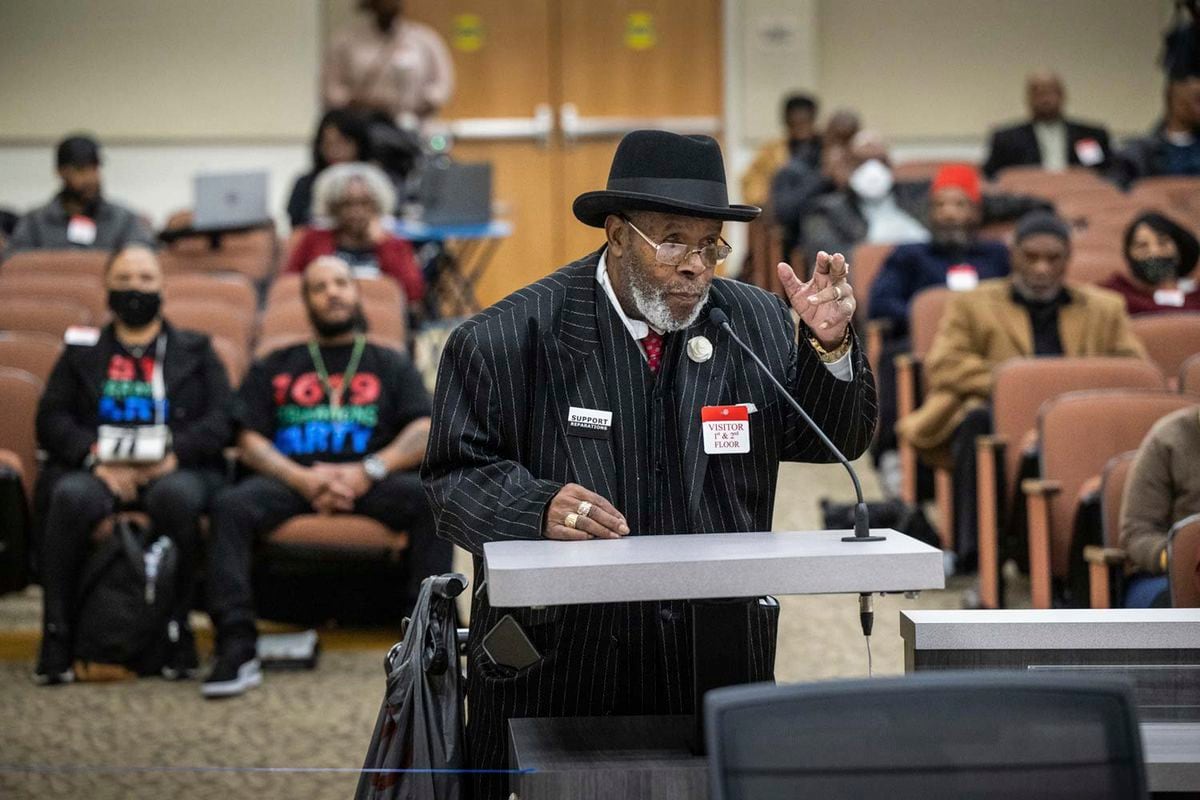After years in preparation, a group of California legislators has finally presented a long-awaited, one-of-a-kind proposal to repair the harms caused by slavery.
The initiative consists of an ambitious package of 14 laws that covers topics as diverse as the prison system, compensation for land expropriation, the elimination of obstacles for businessmen with criminal records and even discrimination due to hairstyles in sports competitions.
There is a big absence.
The congressmen have left out one of their most daring proposals: cash payments to relatives who had enslaved ancestors.
The block of regulations was unveiled this Thursday by the nine legislators who formed a working group.
This aimed to investigate and debate what response the State could give to centuries of injustice in the era of racial segregation known as Jim Crow.
This commission was created in 2020 by Governor Gavin Newsom after the murder of George Floyd at the hands of a Minneapolis police officer, a crime that stirred racial tension in the United States.
For two years and in various sessions throughout the State, the group listened to hundreds of testimonies that narrated how racism impacted their family stories.
California outlawed slavery in its 1849 Constitution, but the region did not accompany this with penalties to punish slave owners, so the practice continued.
The commission's work process was closely followed by politicians, academics, economists and historians due to the possible national repercussions that its conclusions could have.
Other states, such as Colorado, New York or Massachusetts, have done similar exercises, but no one has attempted to turn the recommendations into laws.
In May, the group delivered its final conclusions in two volumes, more than 1,600 pages and 111 recommendations that the Legislative branch must now approve.
“Our mission is to correct the wrongs against black communities caused by laws and policies designed to restrict and marginalize African Americans,” said Los Angeles Congressman Reginald Jones-Sawyer, one of the members of the commission.
“These damages can be found in education, access to housing and financing for small businesses, all of which contributed to denying the collective wealth of a generation for hundreds of years,” the legislator added in a statement.
A rally in favor of paying compensation for damages in San Francisco, in March 2023. Jeff Chiu (AP)
The laws seek, for example, to restrict the time of solitary confinement for people in prisons due to the effects it can have on mental health.
The rule is similar to one presented last year.
This failed in its legislative passage.
Newsom vetoed another similar measure in 2022. The black caucus aims to give it new life in the state Congress.
Only one of the initiatives would put money in the hands of people affected by racism.
The proposal by local Senator Steven Bradford, of Los Angeles, would restore to its original owners the ownership of land that was expropriated during the times of segregation.
As the proposal is written, the families of those affected would be entitled to financial compensation.
half a billion dollars
Bradford's proposal drastically reduces the universe of beneficiaries in a State that has 2.6 million African Americans.
Media attention focused for months on the amount that the members of this racial minority, 5% of the State's inhabitants, would receive.
The commission narrowed the proposal and voted to set requirements.
Only those who could directly trace their lineage to the times of Jim Crow and whose ancestors immigrated before 1900 would receive money.
Some economists who advised the commission estimated that the total cost of the measure would be around $500 billion, according to the most conservative numbers.
The figure was much higher than the annual budget of the entity (297,000 million), the most populated in the country.
The members of the commission estimated during the exercise that a black resident of the State would receive about $2,352 annually as compensation for police persecution and overpopulation of African Americans in prisons between 1971 and 2020. Another calculation provided $3,366 to people in neighborhoods blacks to compensate for years of racism from banks and institutions that denied mortgage loans between 1930 and 1970. The reduction in life expectancy made them eligible for $13,619 for each year of residence.
In this way, a 70-year-old Californian could expect to receive up to $1.2 million.
Governor Newsom, who has a budget deficit facing the next few years, does not believe that the repair should be covered with money.
In an interview with the conservative news channel Fox News, the president stated last year that the commission's goal was not to sign checks, but rather to correct systemic injustices of racism, which could be addressed "in different ways."
The governor's words have been taken up by the members of the working group.
Congresswoman Lori Wilson, from the city of Suisun, pointed out this Thursday that it is a mistake to “directly associate reparations with cash payments.”
“The true meaning of the word repair involves many more things,” said the legislator, who chairs the black caucus in the local Congress.
This still has an uphill road to pass the laws.
Subscribe to continue reading
Read without limits
Keep reading
I am already a subscriber
_

